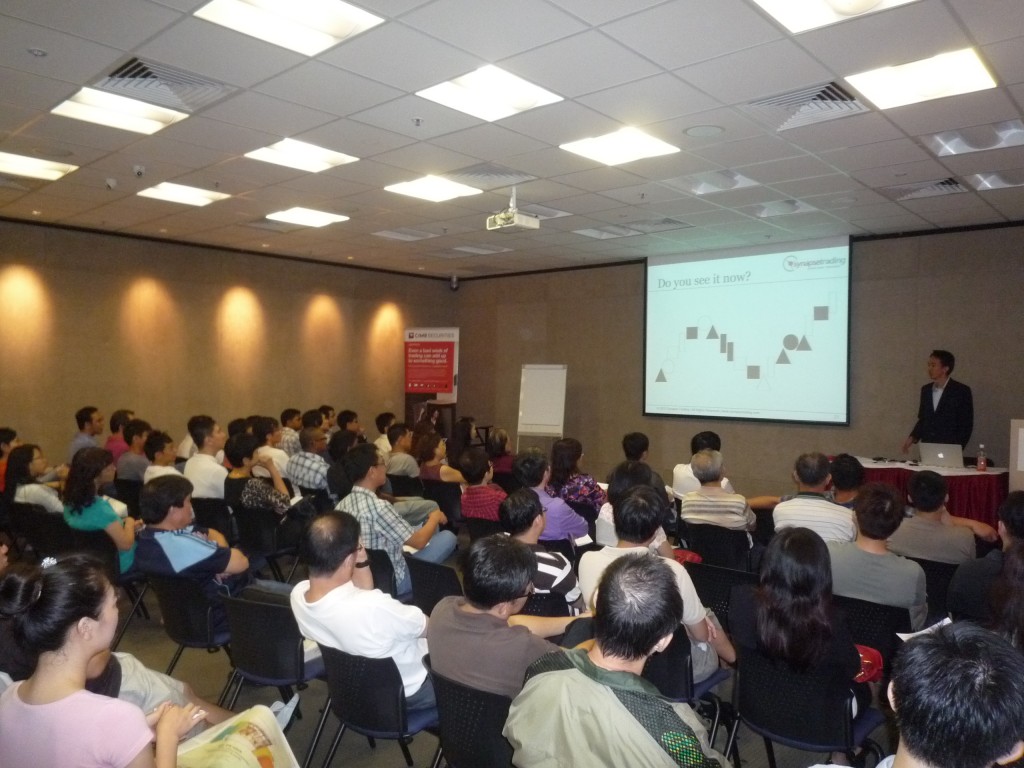Regret Aversion Bias – Would You Rather Be Right, or Avoid Being Wrong?
Join our Telegram channel for more market analysis & trading tips: t.me/synapsetrading
People exhibiting regret aversion avoid taking decisive actions because they fear that, in hindsight, whatever course they select will prove less than optimal. Basically, this bias seeks to forestall the pain of regret associated with poor decision-making. It is a cognitive phenomenon that often arises in traders, causing them to hold onto losing positions for too long in order to avoid admitting errors and realizing losses.

Regret aversion also makes people unduly apprehensive about taking positions after a string of losses, as they feel instinctively driven to conserve, to retreat, and to lick their wounds. This might cause them to hesitate most at moments that actually merit aggressive behaviour.
This can also affect a person’s response to winning positions. For example, traders might be unwillingly to sell an in-the-money position despite negative signals, choosing to cling on to it because they fear that the stock might continue to soar even higher once they sell it.
People who are regret-averse try to avoid distress arising from two types of mistakes, (i) errors of commission and (ii) errors of omission. The former occurs when we take misguided actions, while the latter arises from misguided inaction, that is, opportunities overlooked or foregone.
The other danger comes from “herding behaviour” where traders simply try to follow the crowd, since following the mass consensus diffuses responsibility and hence the potential for future regret.
What is the best solution for this?
The way out of this is to have confidence in your methods and your skill, so that despite a string of losses, you will still be able to trade consistently, because you know that in the long run, you will be able to recoup those losses and turn up a profit when you manage to catch the big moves. The key here is discipline and consistency.
“I visualized my grief if the stock market went way up and I wasn’t in it – or if it went way down and I was completely in it. My intention was to minimize my future regret, so I split my retirement plan contributions 50/50 between bonds and equities.” – Harry Markowitz, father of Modern Portfolio Theory

If you would like to learn more about trading psychology, also check out: “The Complete Guide to Investing & Trading Psychology”
 Our flagship mentoring program is suitable for both beginners and advanced traders, covering the 4 strategies which I used over the past 15 years to build up my 7-figure personal trading portfolio.
Our flagship mentoring program is suitable for both beginners and advanced traders, covering the 4 strategies which I used over the past 15 years to build up my 7-figure personal trading portfolio.
 If you're looking for a reputable brokerage that covers all products (SG stocks, US stocks, global stocks, bonds, ETFs, REITs, forex, futures, crypto) and has one of the lowest commissions, this is what I currently use.
If you're looking for a reputable brokerage that covers all products (SG stocks, US stocks, global stocks, bonds, ETFs, REITs, forex, futures, crypto) and has one of the lowest commissions, this is what I currently use.
After trading for 18 years, reading 1500+ books, and mentoring 1000+ traders, I specialise in helping people improve their trading results, by using tested trading strategies, and making better decisions via decision science.





Trackbacks & Pingbacks
[…] to “get it” while others follow the lead of trendsetters or finally succumb to their regret-aversion bias. Either way, these waves of adopters have a destabilizing effect on the exchange rate: speculators […]
[…] by kortx [link] [1 […]
[…] to Bitcoin to “get it” while others follow the lead of trendsetters or finally succumb to their regret-aversion bias. Either way, these waves of adopters have a destabilizing effect on the exchange rate: speculators […]
Leave a Reply
Want to join the discussion?Feel free to contribute!